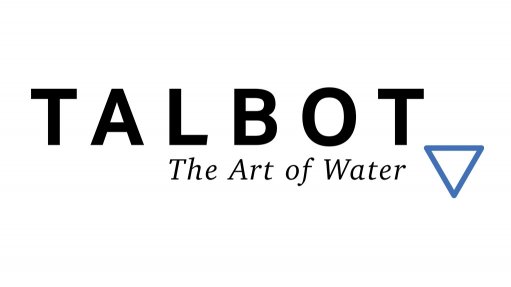
Sustainable water and wastewater specialist Talbot is in the final stages of commissioning a water treatment plant that will enable one of its clients in the gold sector to take a step towards water independence while significantly reducing its expenditure on municipal supplies. It will do this by recovering water pumped from underground workings that would otherwise be wasted.
Many mines are faced with a unique challenge. Although they’re confronted with a scarcity of potable water on surface, underground lie extensive reservoirs that need to be carefully managed to mitigate safety, operational and environmental risks. This is particularly true in the South African gold mining sector.
“Water scarcity on the surface is a situation that will continue to be exacerbated by population growth, urbanisation, pollution and the growing effects of climate change; all of which are already translating into mounting costs, a more demanding regulatory environment and competition between industry and communities for access,” says Talbot economist and transaction advisor Mike Smith.
Reduced dependence on municipal supply
The containerised reverse osmosis plant is being commissioned at a site on the Witwatersrand goldfields and will treat water abstracted through the mine’s dewatering programme.
“This treated water will enable a significant step towards water independence by replacing expensive potable supplies. At the same time, it will alleviate some of the burden on the already stressed supply system while enhancing the operation’s Environmental, Social and Governance (ESG) reputation,” says Talbot technical director Grahame Thompson.
The plant has been financed, designed, and constructed under a structure that will see Talbot take full responsibility for its ongoing operation and maintenance for the contract period, enabling Talbot to sell water back to the mine at approximately 40% of what it currently pays for water. Savings are expected to exceed R15 million a year.
“The client’s ultimate aim is to become self-sufficient in respect of its water needs by investigating and developing other opportunities, one of them being the utilisation of alternative sources,” says Thompson, adding that this project will reduce its dependence on regional water supplies by as much as 30%.
“This initiative falls firmly in line with National Water Week’s theme, ‘Water for All’, as by reducing offtake from the regional supply, more water is made available for communities that need it most,” says Smith.
The South African National Water Week campaign is aimed at educating the public on the need to protect and conserve the country’s water resources. It urges everyone to use water sparingly to ensure accessible ‘Water for All’.
Talbot solutions encompass the entire water spectrum – from the design, funding, construction, operation and maintenance of plants – to helping clients identify and implement valuable opportunities to save, reuse and recycle water. It has delivered more than 300 water and wastewater projects in 25 African countries, the Indian Ocean Islands, Australasia and eastern Europe.